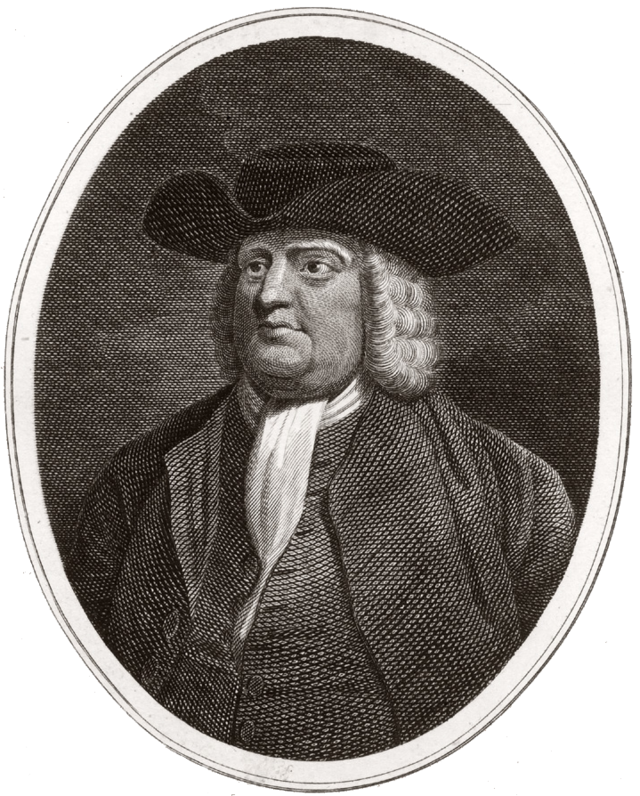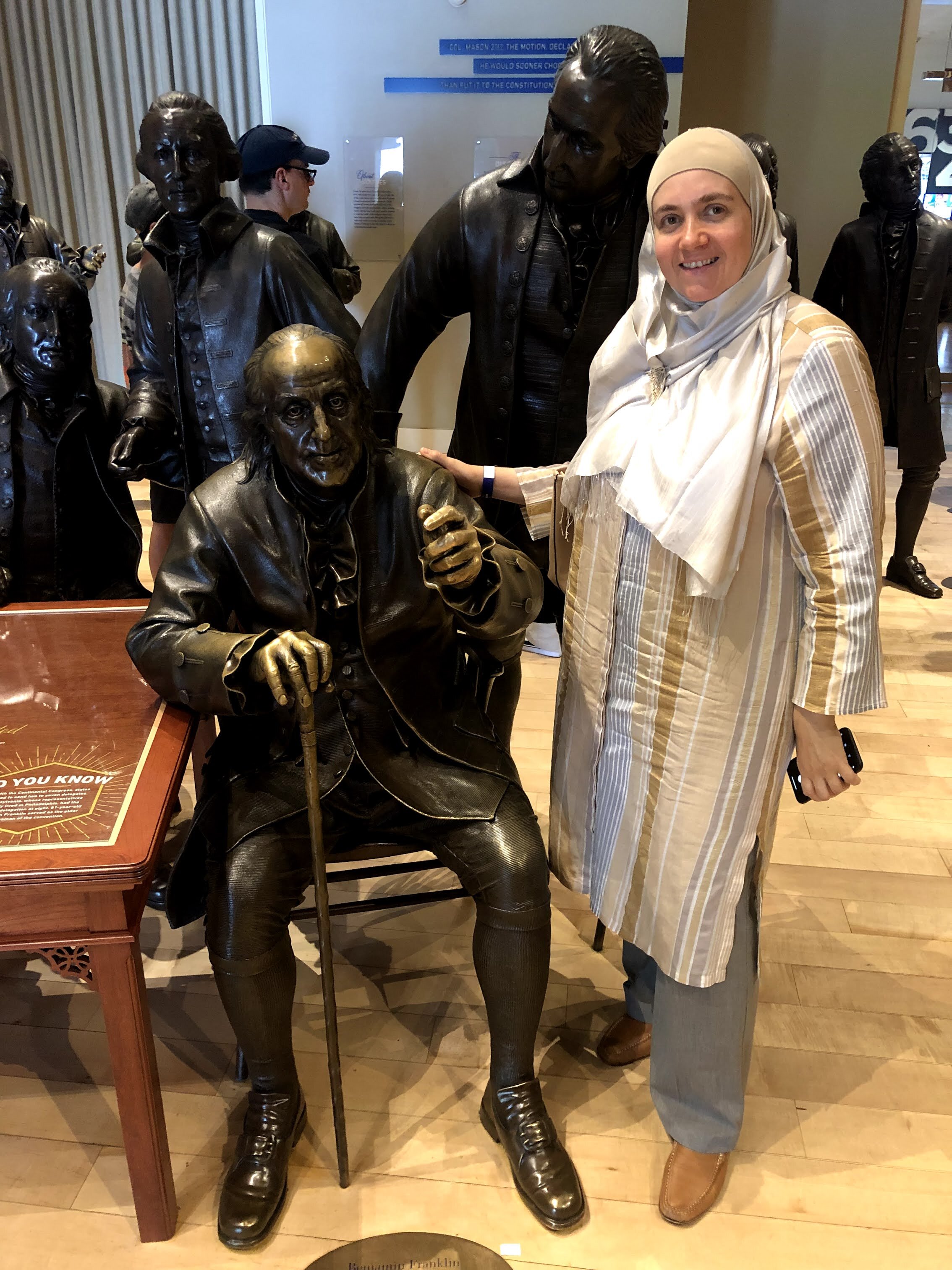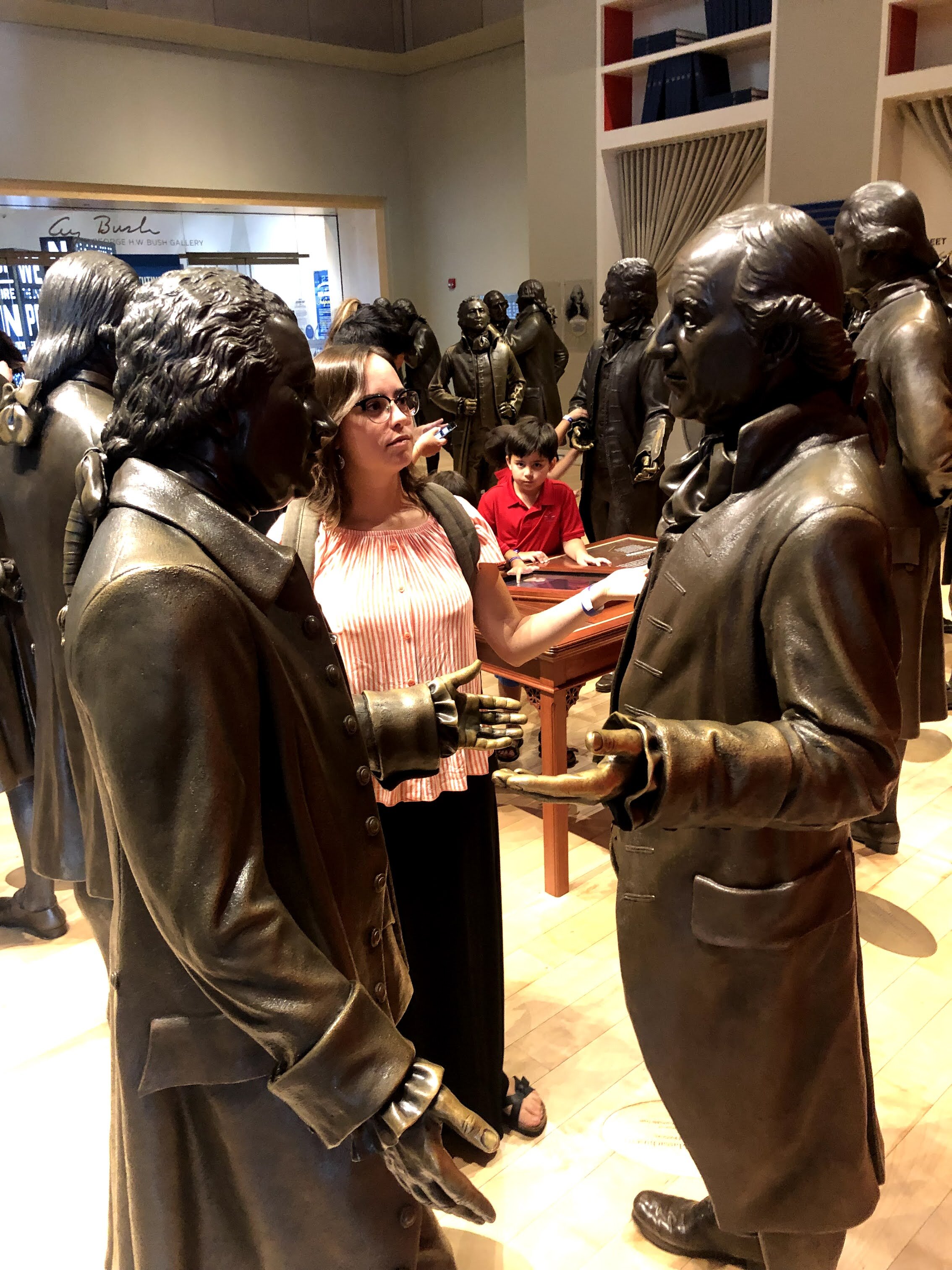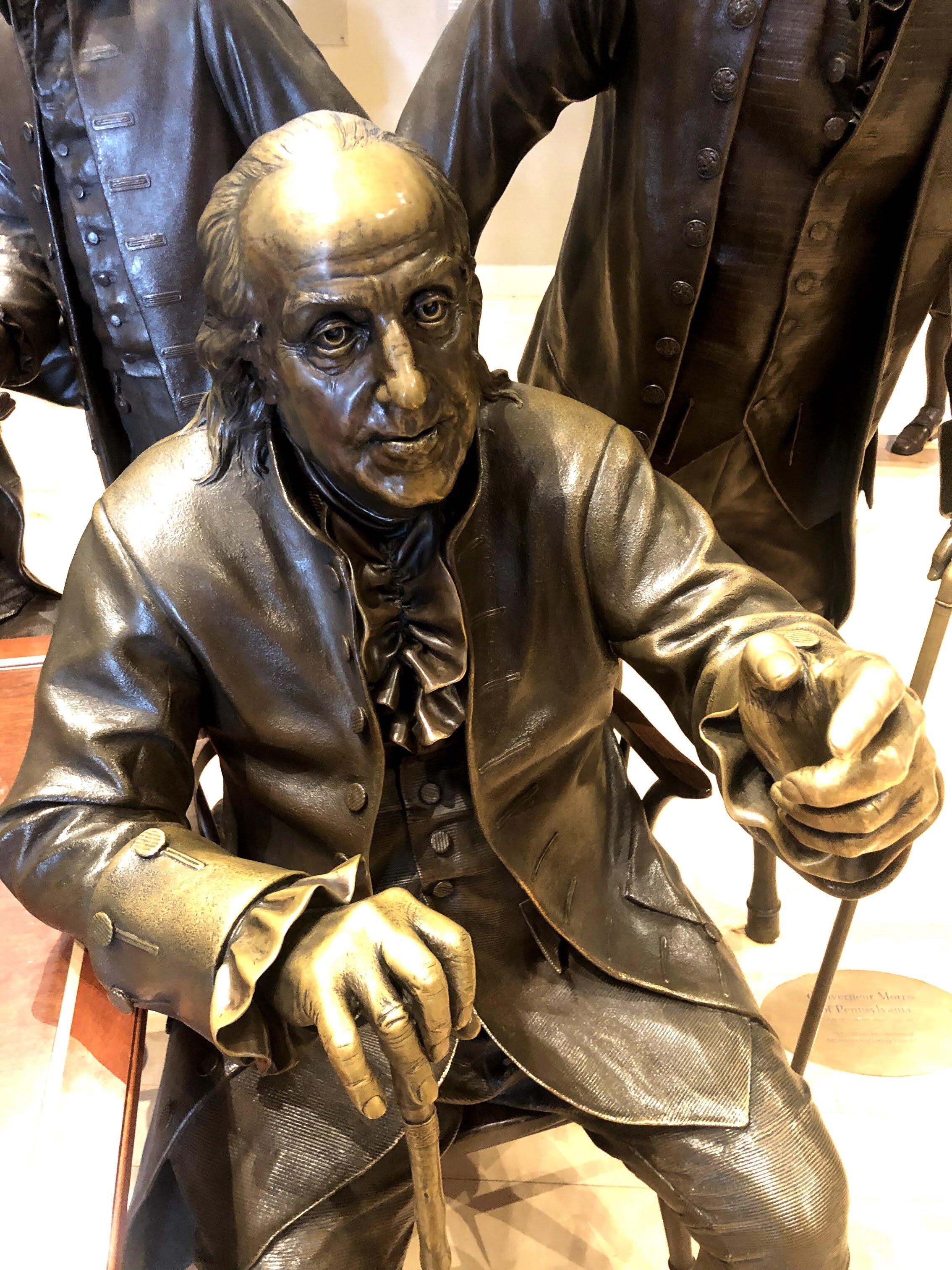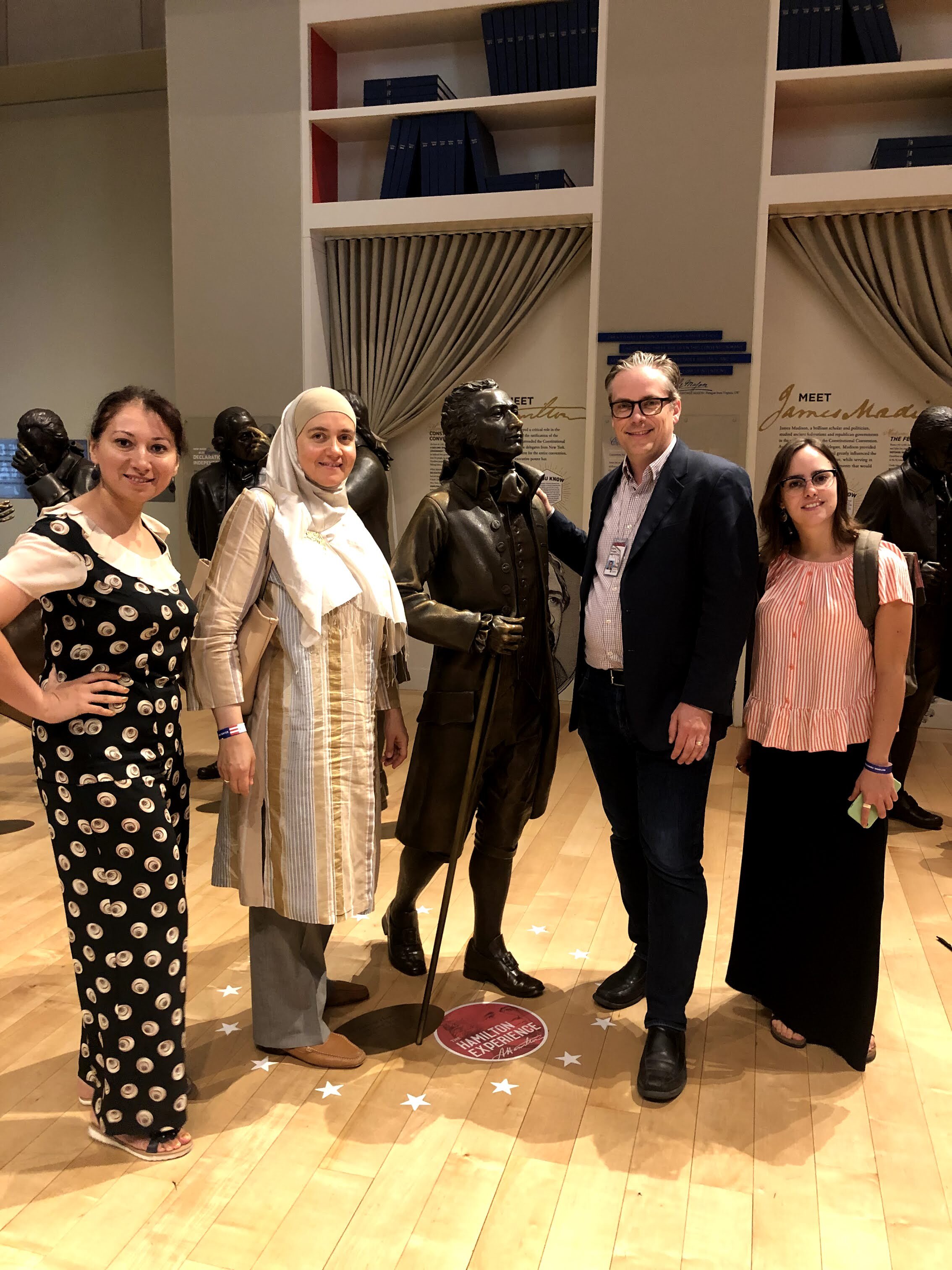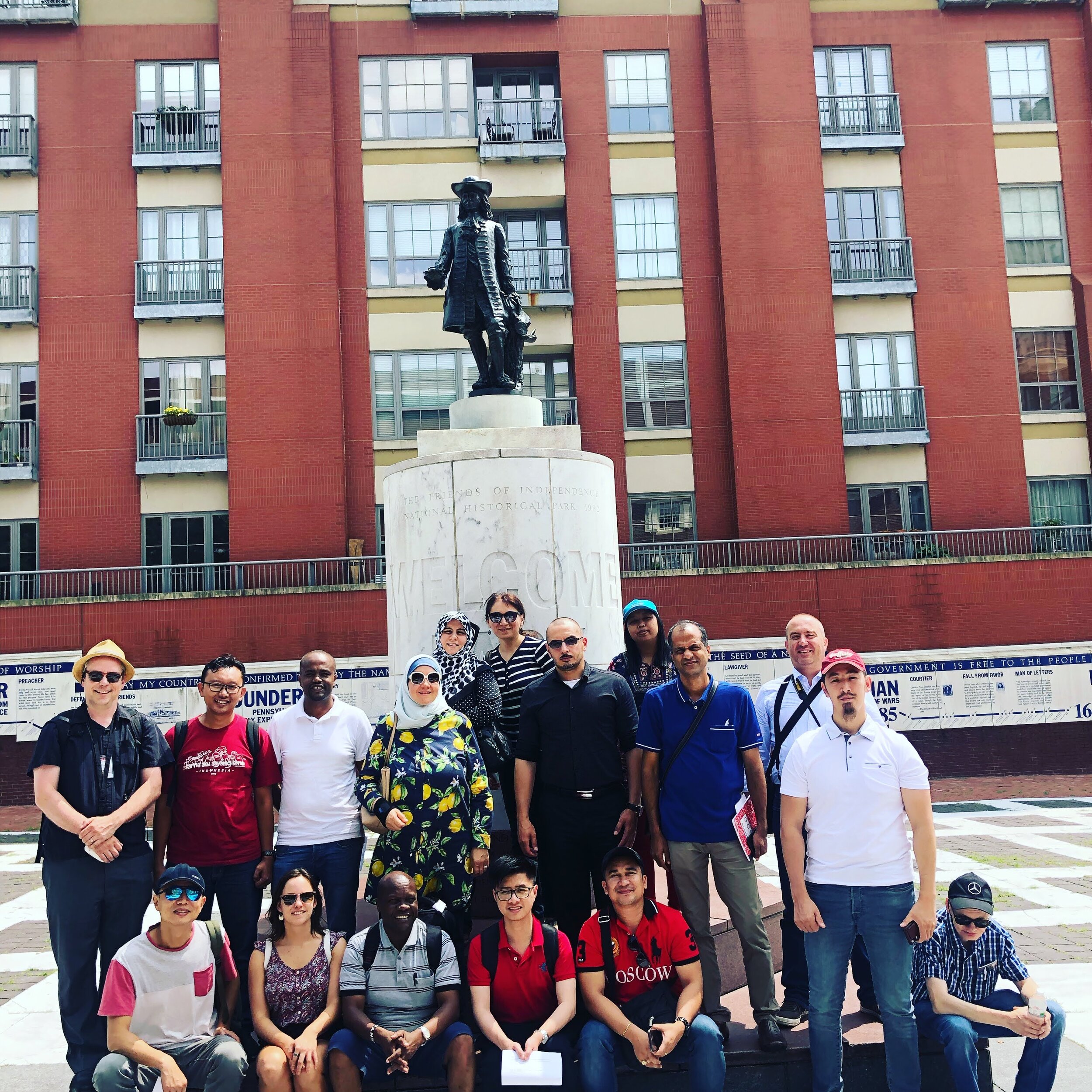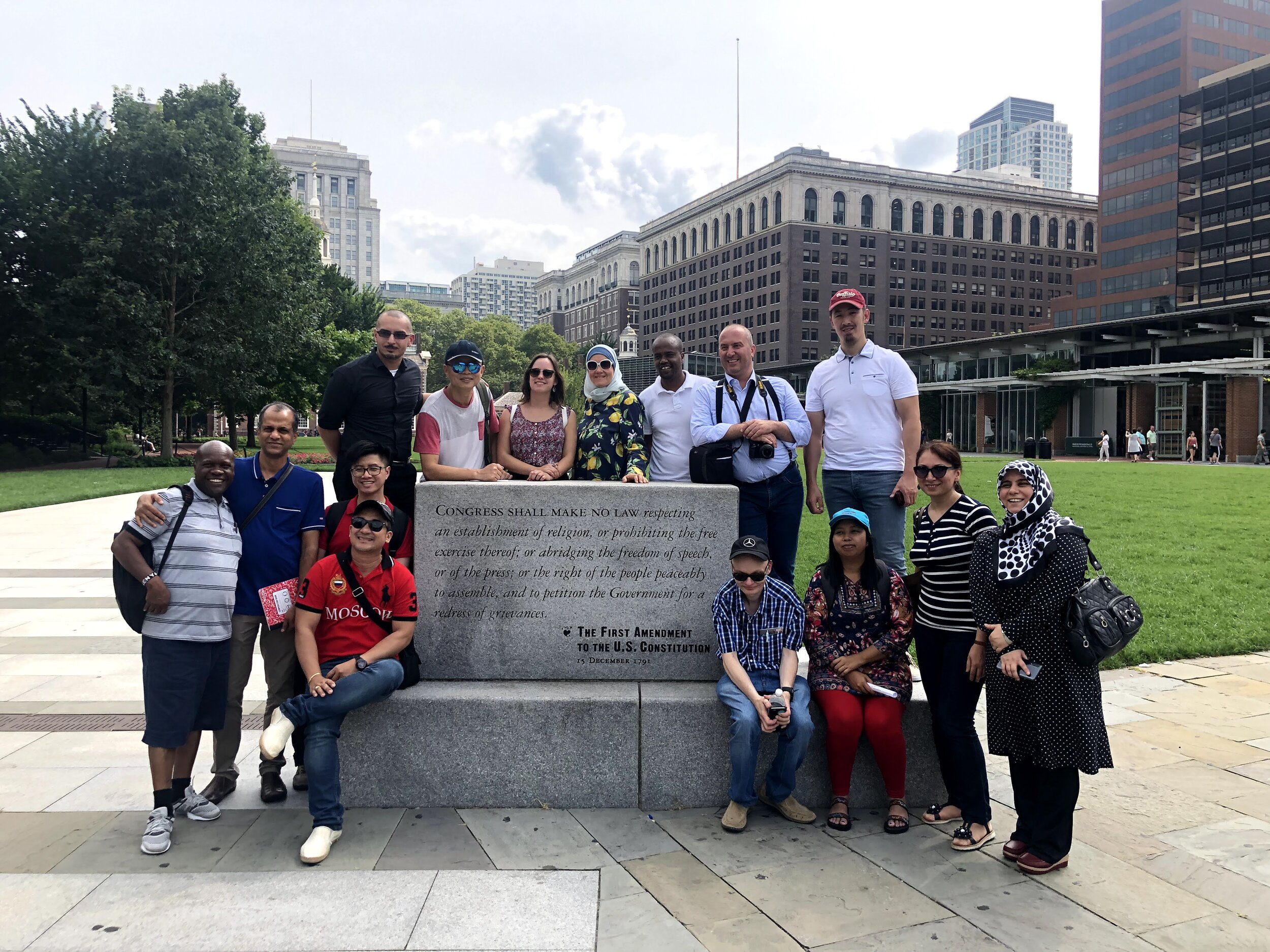Module 3: Democracy and the Foundations of Religious Liberty
There is no better location in the United States than Philadelphia to learn about the origins of the U.S. system of governance and the role of religion in the nation’s legal system. Philadelphia is well known as the place where the British colonies in North American declared independence in 1776 and also where the U.S. Constitution was written in 1787. It is less known that the colony of Pennsylvania, founded by the Quaker William Penn, was unique among the colonies in that it welcomed religious diversity and did not establish an official church. The Pennsylvania model influenced the Constitution’s First Amendment, which enshrined in U.S. law the legal rights to the free exercise of religion and the prohibition against its establishment of a national religion. The pages below tell the stories of the nation’s founding and how Americans continue to debate the meaning of the First Amendment.
Note: Links will be provided as new content pages are created.
William Penn established the colony of Pennsylvania in 1682.
Orientation to Philadelphia and Historical Tour: includes a Google map of Philadelphia sites and tour notes from David Krueger
William Penn and His Legacy: lecture by Marianne Wokeck held at the historic Arch Street Meetinghouse
Independence Day and American Civil Religion: lecture on civic celebrations of the nation’s birth and other dimensions of American Civil Religion
U.S. Constitutional Law and Religion: including a lectures Perry Dane on the First Amendment and the separation of church and state by Michael Cohen and Andi Laudisio.
Religion and the U.S. Founders: lecture notes by Terry Rey
Founding Documents Panel: this panel was held at the Historical Society of Pennsylvania and featured lectures by Beth Twiss Houting, Christine Larocco, Howard Cohen, and Majid Alsayegh.
SUSI Scholars 2019 in front of the First Amendment Monument on Independence Mall in Philadelphia.


